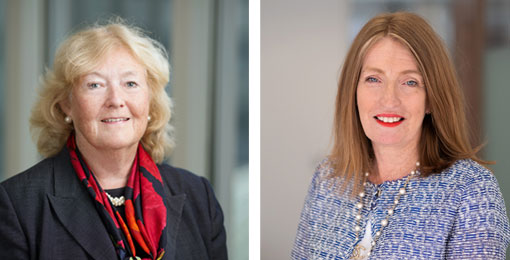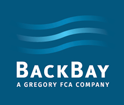
Monument Group was founded in 1994 and has assisted general partners in raising capital through several market cycles. What three things have changed the most in how you conduct your business over that time?
Alicia Cooney:
The use of technology has impacted our business as a placement agent more than any other factor in our history. Our business was once almost entirely paper-based; in the early days, launching a fund would mean stacks of boxes of Private Placement Memorandums and cover letters requiring back breaking trips to the post office. Providing offering documents electronically enhances the opportunity for broader marketing reach. Data rooms were literally in physical locations with bound books, which severely limited access for prospective investors. Investors would come to view the data room at our offices, or perhaps at our law firms’ offices in select locations. Today, we can set up electronic access globally, available at any time of day or night for due diligence materials that can be printable and downloadable or for more confidential data to be accessed as no-print, no-download and read-only. Of course, the additional benefit is that we are saving more trees.
The use of video technology, which has been accelerated by the Covid-19 pandemic, has been another important technological evolution commencing a few years ago. Investing in long-term illiquid assets remains a face-to-face business, but having a remote view is certainly becoming more acceptable. It has been a valuable medium through which we conduct one-on-one meetings, as well as webinars, quarterly updates, Annual Meetings or other updates to funds. Videos, whether live or pre-recorded, can be particularly useful in a global setting, for General Partners to reach across the globe to prospective investors, minimizing travel needs, and to allow for more effective working across time zones.
The other change is that as investing in the private equity sector has matured, investors are focusing on building out their portfolios more specifically, and likewise the GPs may be seeking specific types of investors. In sum, more of our placement agent mandates are bespoke, so more managers are approaching us saying for example that they have a strong US base of investors, but would be keen to secure more Asian investors; that they are expanding into the DACH region in Europe, so would like DACH investors; or that they have all institutional investors, but family offices would be beneficial to their business in the future. These are all situations where we have made our fundraising more targeted. We still do plenty of exclusive business, but have added more focused mandates. These do keep our business fun and interesting.
Finally, we have adapted to meet evolving GP needs with a spectrum of additional fundraising services to offer them, whether it is finding a direct co-investor for a deal or to analyze what is left in their existing portfolio – be it a whole fund or one company that may need to be in a continuation fund.
How has fundraising changed during the pandemic? Do you think any changes will last post-pandemic? What do you see as the three main trends in fundraising today?
Janet Brooks:
When the world turned upside down in March 2020 we feared the worst as LPs put investment programs on hold. However, a new normality established far more quickly than post other black swan events and the lasting effects have been more around process, particularly with the move to virtual fundraisings. Before the pandemic only the lucky few could get a fundraising achieved without months of in-person meetings around the globe. Not now, it is becoming the norm. But at the same time, we are seeing a ‘flight to familiarity’. While the bulk of successful fundraising processes are now being completed without a single in-person meeting, LPs are likely only to consider groups that are familiar to them: where they had a meeting in the past, or where they have extremely good reference points. As a result, we are seeing an acceleration of the brand extension trend amongst larger GPs, possibly to the detriment of good performing but smaller, single strategy firms.
How important is it for private equity firms to have a strong brand when they go to market with a new fund? And what are some of the ways private equity firms build a strong brand?
Alicia:
It is without a doubt a real advantage to have a strong brand. For private equity firms, this can be built on a number of strengths, including a robust track record of previous performance, a team of well qualified partners, a network of well-respected LPs and a cogent, identifiable strategy. A strong brand translates into market awareness; a firm may have a good track record, well-regarded investors and a clear strategy, but if the firm has not taken the time to showcase these, then brand awareness will not have been achieved. Not enough investors will know the firm, hence the ability to capitalize on these foundational elements will be restricted. For emerging managers who have not yet built a strong brand, placement agents can play an important role to help them raise their profile, establishing their brand. Most important is to deliver performance with integrity, second is the way you package and tell the story.
What are the three main benefits of general partners engaging with a placement agent versus fundraising on their own?
Janet:
At a superficial level I think most GPs go to a placement agent just hoping they can get the GP in front of investors they can’t get to themselves. But in reality, what a placement agent brings is expertise and experience as well as contacts. And those attributes are particularly sought after in the post-Covid fundraising environment. Firstly, the agent should have the expertise to work with the GP to produce materials that articulate the most compelling arguments for their product and to make sure that it has the best chance of resonating with the largest audience of LPs. Then the agent’s many years of experience with the LPs it covers will provide more than an introduction, it will provide invaluable context and knowledge around the likes, dislikes, current appetites and needs of LPs, which can provide a strategic roadmap for the fundraising. And thirdly, all fundraisings need significant focus and an agent brings the resources and project management skillset to execute on the roadmap, adjusting for bumps along the way if necessary, to ensure a successful final close.
How do you view the role of public relations and content marketing in conveying Monument Group’s story to an external audience?
Alicia:
The role of public relations and content marketing, especially when assisted by BackBay Communications, is highly valuable. The placement agent industry has evolved. It has gotten larger and more diverse, so there are more types of placement agents for every conceivable task. Monument Group has a very consistent story, although it has evolved in terms of geography and the breadth of projects that we undertake. We do not want to be the biggest placement agent – we want to be the best. To do that we know we must leverage the necessary expertise to maintain the brand that we have worked so hard to build. Bear in mind also that the audience evolves, as there are new GPs and LPs coming on board amid ongoing personnel changes, so one cannot stand still. Even if we think our brand at Monument Group is established, we must keep our story fresh and forward-looking.


